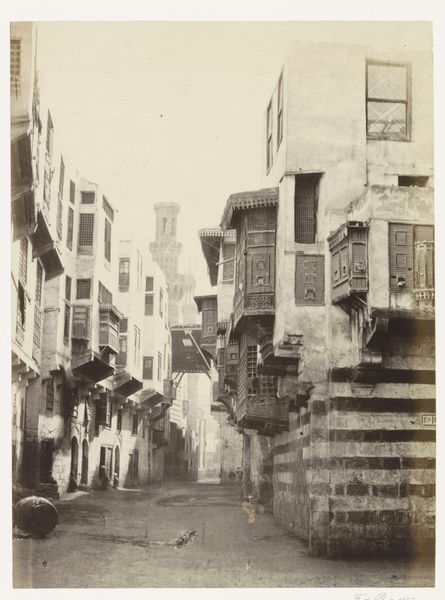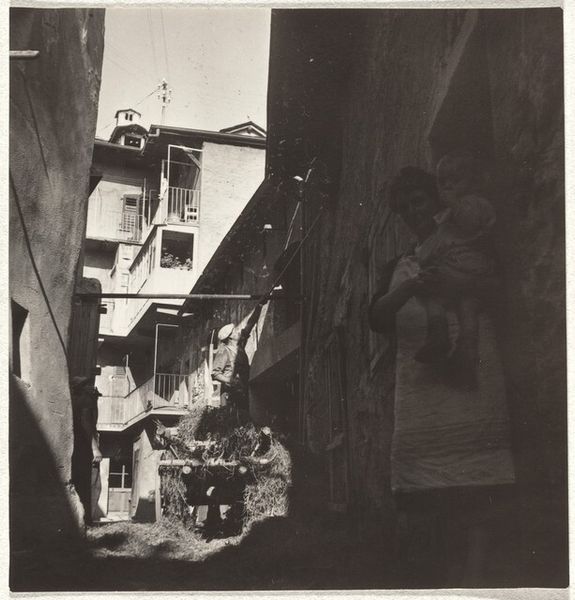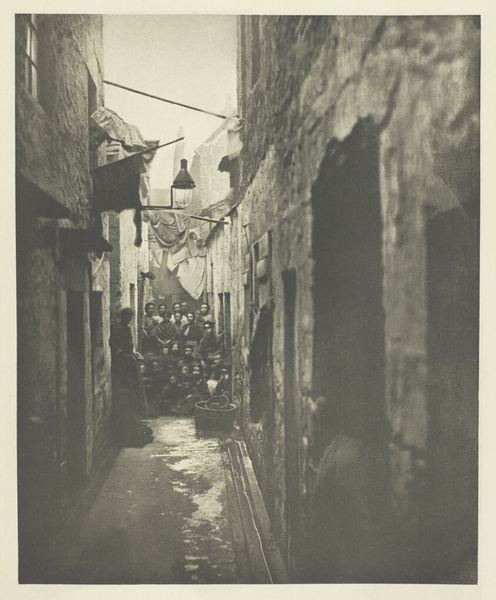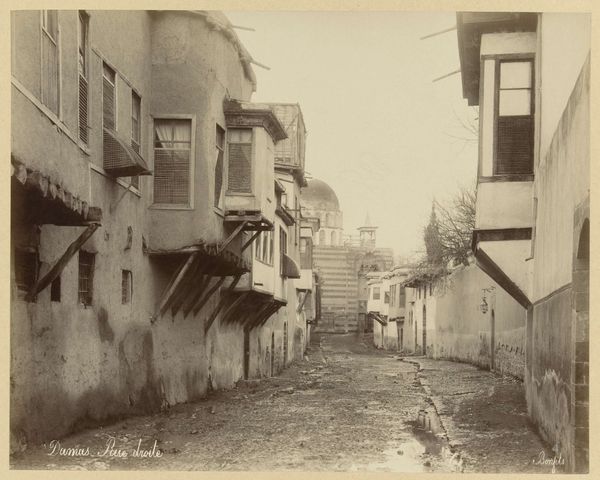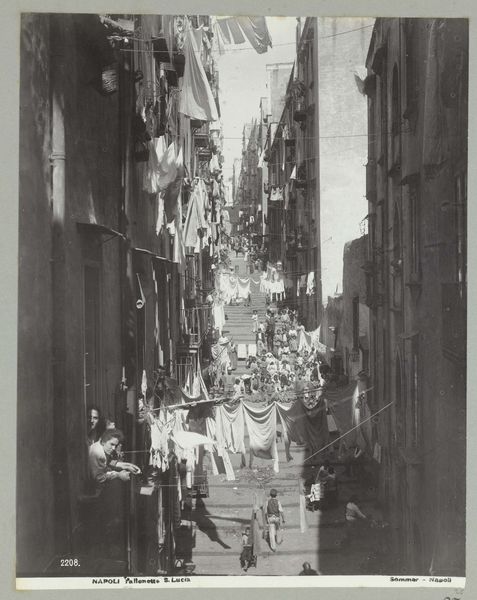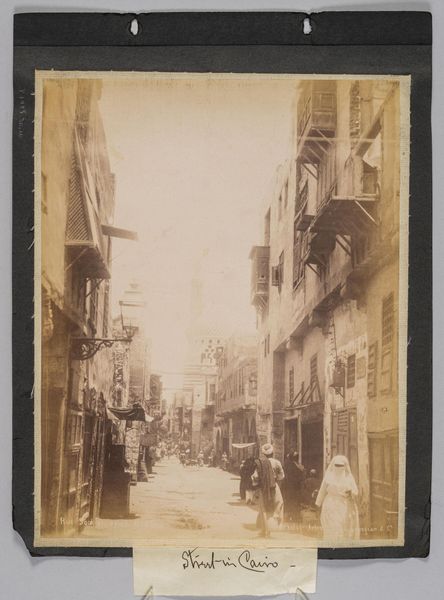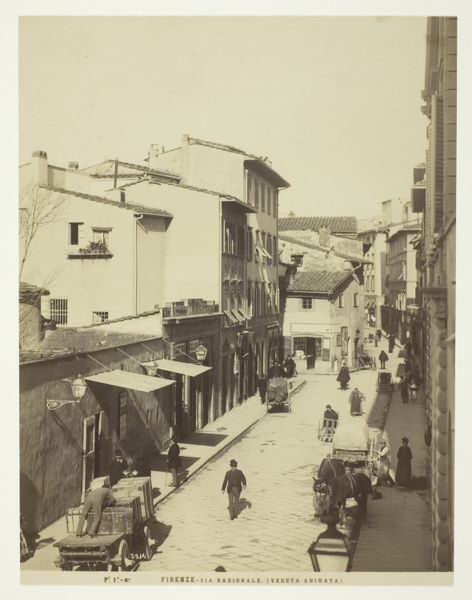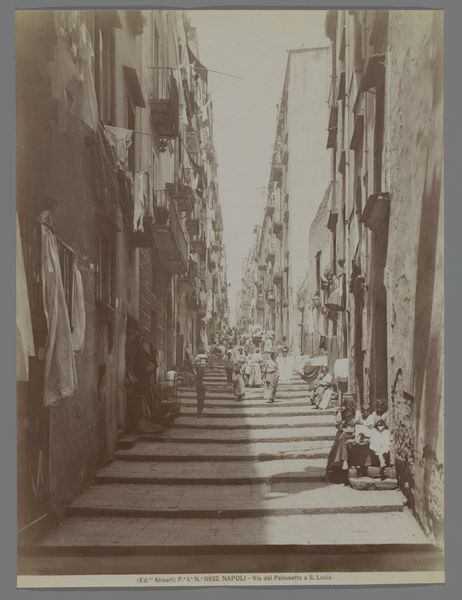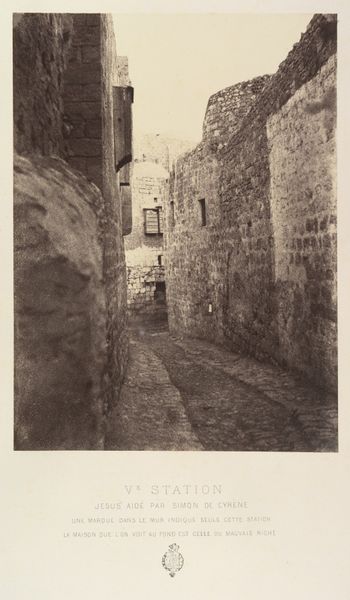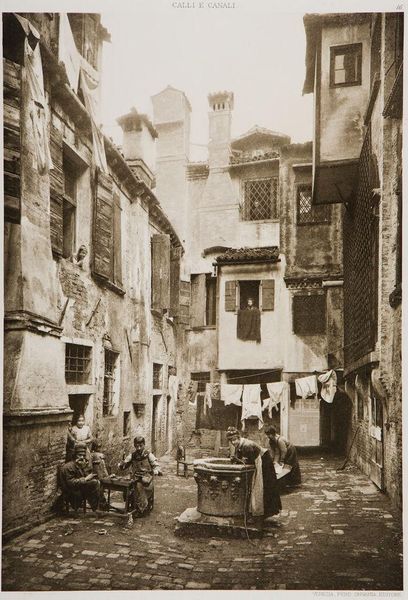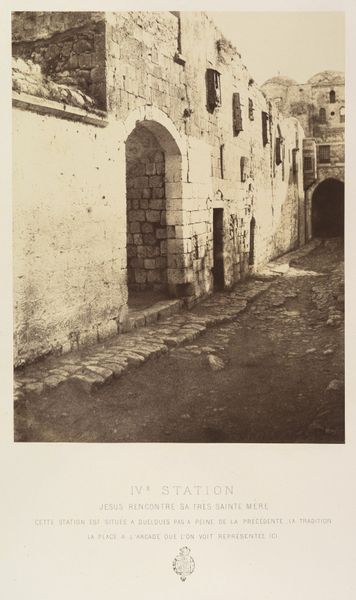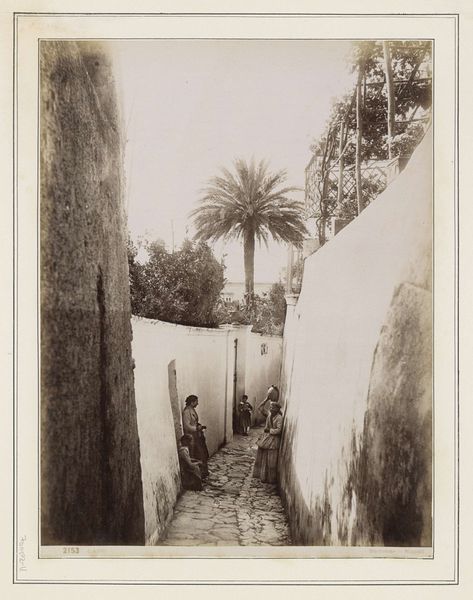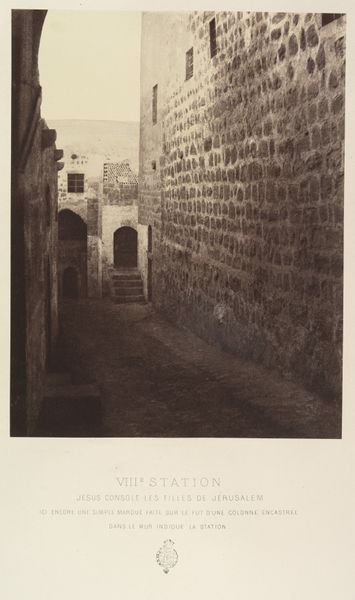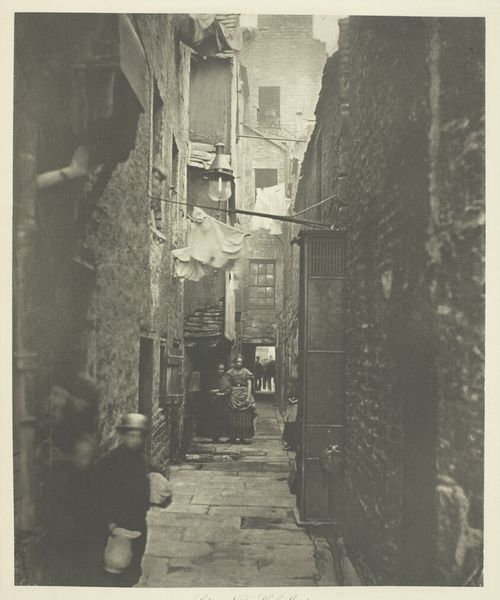
Een nauwe straat in Menton met vrouwen en kinderen in het straatbeeld c. 1886 - 1896
0:00
0:00
henrypauwvanwieldrecht
Rijksmuseum
photography
#
landscape
#
outdoor photograph
#
archive photography
#
street-photography
#
photography
#
historical photography
#
couple photography
#
monochrome photography
#
cityscape
#
genre-painting
#
realism
#
monochrome
Dimensions: height 275 mm, width 217 mm, height 322 mm, width 498 mm
Copyright: Rijks Museum: Open Domain
Curator: So this evocative monochrome photograph, “A Narrow Street in Menton with Women and Children in the Street”, offers us a slice of late 19th-century life. It’s from somewhere around 1886 to 1896 by Henry Pauw van Wieldrecht. It’s got this incredibly intimate, almost voyeuristic feel. Editor: That's exactly it. It feels like peering into a dream, doesn't it? This compressed perspective, the washed-out light…it almost feels like a memory fading. Curator: Definitely a fading memory feeling to it. I’m interested in the recurring imagery of women, especially within constrained settings. I notice the street becomes this almost symbolic channel, perhaps even womb-like, framing their lives. The light concentrates there, illuminating this essential, hidden female space. Editor: And the children! Are they symbols of promise within these confines, or trapped spirits of repetition? Even the dog laying in the foreground introduces a sense of the familiar, of mundane, maybe slightly miserable domesticity… I’m projecting of course, but, well! Curator: Not projecting, amplifying I would say. You picked up on that really well, that animal could represent fidelity and home. Also, consider the visual language itself: narrow streets symbolizing restriction versus the promise of sunlight filtering down – such high contrast. Editor: Exactly! That high contrast just gets the symbolic narrative across… Do you also get the sense of timelessness through this contrast? It has something so archaic that speaks about humanity rather than mere city living in the nineteenth century. Curator: I do; the composition guides us through different social and personal layers, offering clues for meaning, doesn't it? A little stage. Editor: Precisely, an archive photograph of existence itself, something truly profound… the human tale eternally staged in little towns. Curator: It’s almost uncanny that something recorded on film over a century ago can stir such deep recognitions about our present and our eternal being. I leave this with us now. Editor: Wonderful indeed. It also tells our today, in black and white tones. Something unique is the light, from those facades, how timeless that will be to the visitor.
Comments
No comments
Be the first to comment and join the conversation on the ultimate creative platform.
